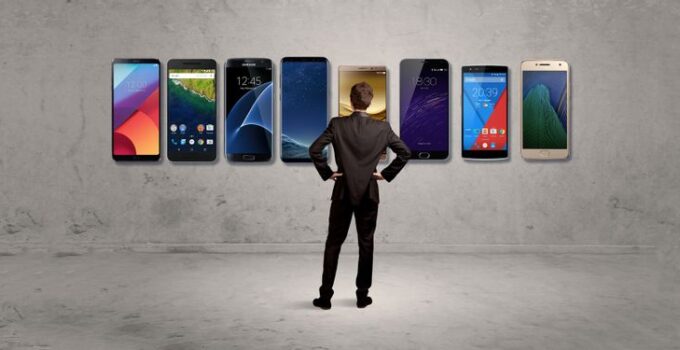When mobile phones became popular in the late 1990s and early 2000s, there were only things that you needed your phone to do for you. You needed it to be able to make calls, and you needed it to be able to send and receive text messages. Beyond that, your only concern was pricing and battery life – although battery life wasn’t really a concern back then. As we all know because of the prevalence of memes on the internet, an old Nokia phone could run for days without needing to be charged, and some of them are still used today by people trying to distance themselves from all the notifications that come with more modern handsets.
For most people, though, calls and texts aren’t enough anymore. We need our phones to do more for us, and modern phones can do almost anything we ask of them. They’ve become more like virtual assistants to business people, managing every detail of our busy days. With so many phones on the market, though, how do we know what features we should look out for? What’s ‘nice to have,’ and what’s essential?
If you’re in the market for a new phone and you’re wondering which attributes you should focus on, here are the factors that we think matter more than all the others.
Storage
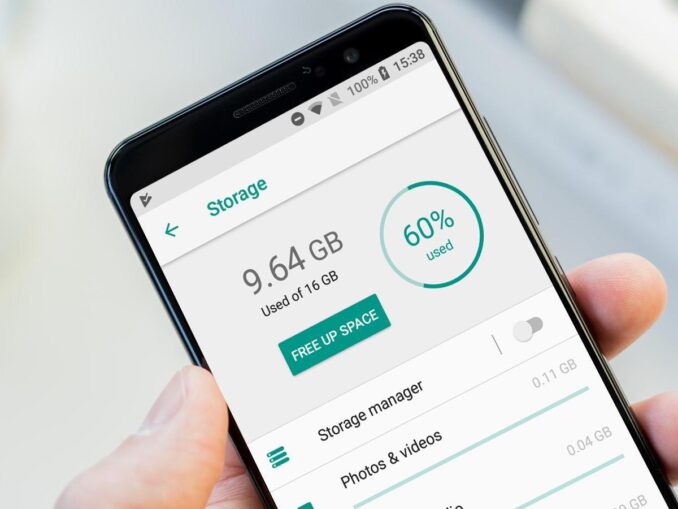
Source:techadvisor.co.uk
The most advanced and expensive smartphones on the market today have more storage space than your old laptop does. It’s not uncommon to see phones with 128GB of storage space, or even more in some cases. That’s important if any aspect of your professional or social life relies on having a lot of files, photographs, or videos stored for instant access at all times. Don’t forget that apps take up storage space, too, and we’re not just talking about the file download size. The more you use an app, the more data it’s likely to store on your phone because of it. Having to decide which apps and photos to delete to make room for newer content is frustrating and impractical, so if you know you’re going to want to keep everything you download, make sure you have enough space to do it.
Battery Life
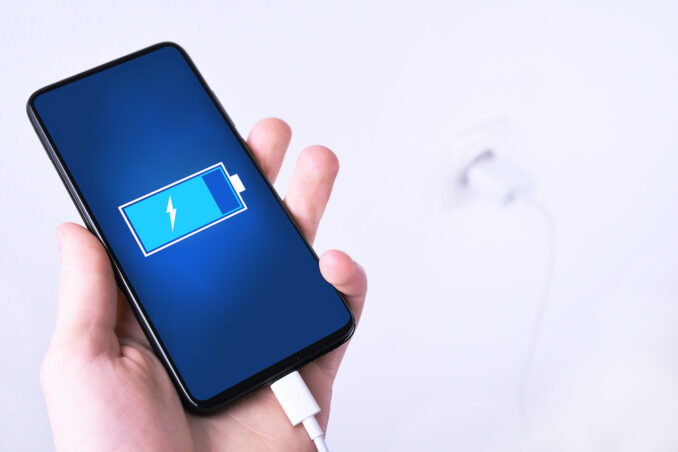
Source:poweryourgadget.com
Even with ten apps running and constant calls and messages, a good phone should be able to go a full day without needing to be charged. The performance of your battery will begin to drop away after a year or so of use, but you should still be able to at least get through a full working day without having to plug it in, even if your phone is two years old. The current standard is around 2500 mAh, which should just about do this, but you might struggle with it as the phone ages. To make sure you’re not forced to consider replacing your handset before your contract is due for renewal, consider buying a device with a capacity of 4000 mAh or more instead. You should be able to guarantee that you’ll still be getting good performance out of that in the future.
Screen Resolution
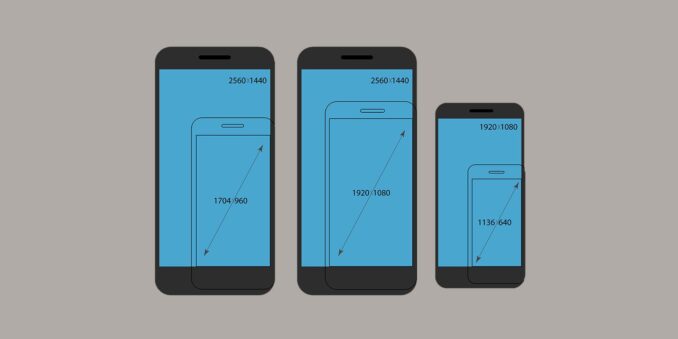
Source:buildfire.com
This is a factor that only really used to apply to gamers. Modern smartphone games aren’t the basic and simple affairs that they were a few years ago when “Snake” was popular. First, online slots websites like CloverCasino.com began to adapt their games for the mobile format, turning them into mobile slots. The size and reach of the online slots market shouldn’t be underestimated. All over the world, tens of thousands of people play online slots on their phones every day, and the more modern ones are made in HD. HD resolution online slots – or HD resolution games of any kind for that matter – require at least 1024pp displays to function on. Nowadays, we use our phones almost like small televisions for streaming films and TV shows, so being able to display HD-or-better resolution is even more important than it was a few years ago. Stick to phones that offer 1280 x 720 as a minimum, and prioritize LCD displays over AMOLED displays.
Screen Size
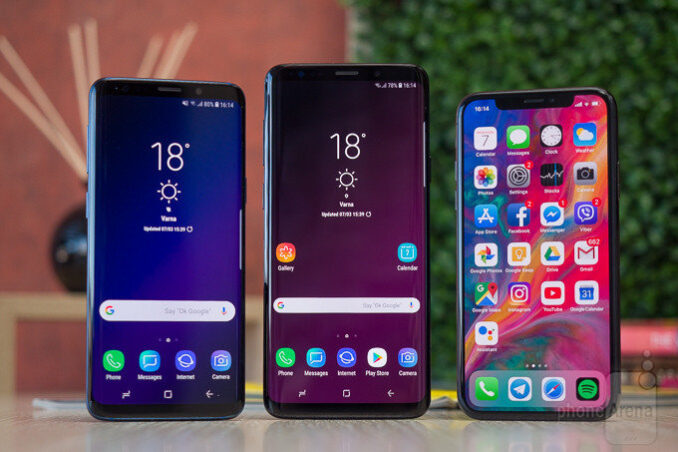
Source:phonearena.com
How’s your eyesight? In fact, how’s your touchscreen typing accuracy? If the answer to either one of those questions is ‘not great,’ then you don’t want to sell yourself short by taking on a phone with a screen that’s too small for you. You’ll either find yourself squinting at it, or you’ll make constant typing mistakes because you don’t have enough space to work with. The good news is that this shouldn’t be a major concern anymore. Phones are getting bigger. In fact, if the rate of size increases at its current pace, the iPhones of twenty years’ time would be larger than the average wine bottle. We don’t think that’s ever likely to happen because such a device wouldn’t fit in your pocket, but you get our point. For clarity and accuracy, go with a bigger phone. If you have excellent eyesight and small fingers, you might still be able to get away with a ‘mini’ model!
Camera
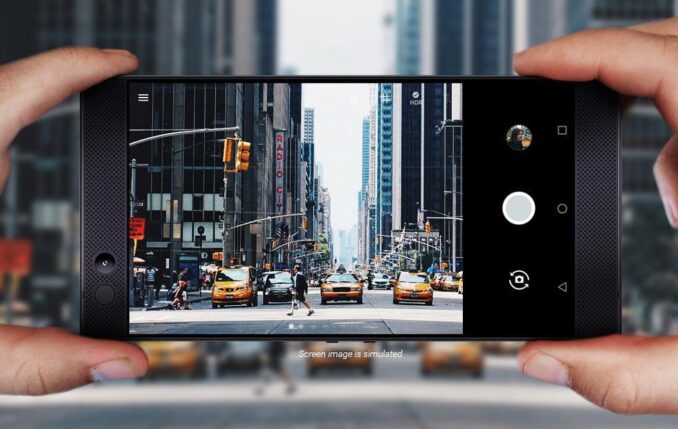
Source:slashgear.com
Do you still have a digital camera somewhere in your home? Obviously, we can’t see your responses, but we suspect there are only two types of people who responded ‘yes’ to that question. Professional photographers will still own one, and so will people who haven’t had a clear out of their old unused gadgets for a while. Everyone else relies on their phone for grabbing pictures. That means you need to make sure it’s a good one if you want those special memories to be recorded clearly. Camera technology for phones improves dramatically year on year, so the only way to ensure that you’ve got a great one is to buy a phone from the top end of the market. At the time of writing, the best phone cameras for our money are found on the latest Apple iPhone 12 Pro, the Samsung Galaxy S20, and the Huawei P40 Pro. None of them are cheap, but as is the case with so many things in life, you get what you pay for.
We realize that following our advice will result in you paying more for your phone than someone looking at the budget end of the market would, but ask yourself this. Would you rather buy a cheaper phone now and then pay the same price again to replace it in eighteen months, or would you rather pay more right now and not have to worry about replacing it for much longer, or until the end of your contract term? Quality costs money, but if your device ticks all the boxes we’ve outlined above, you’ll have a quality phone.


